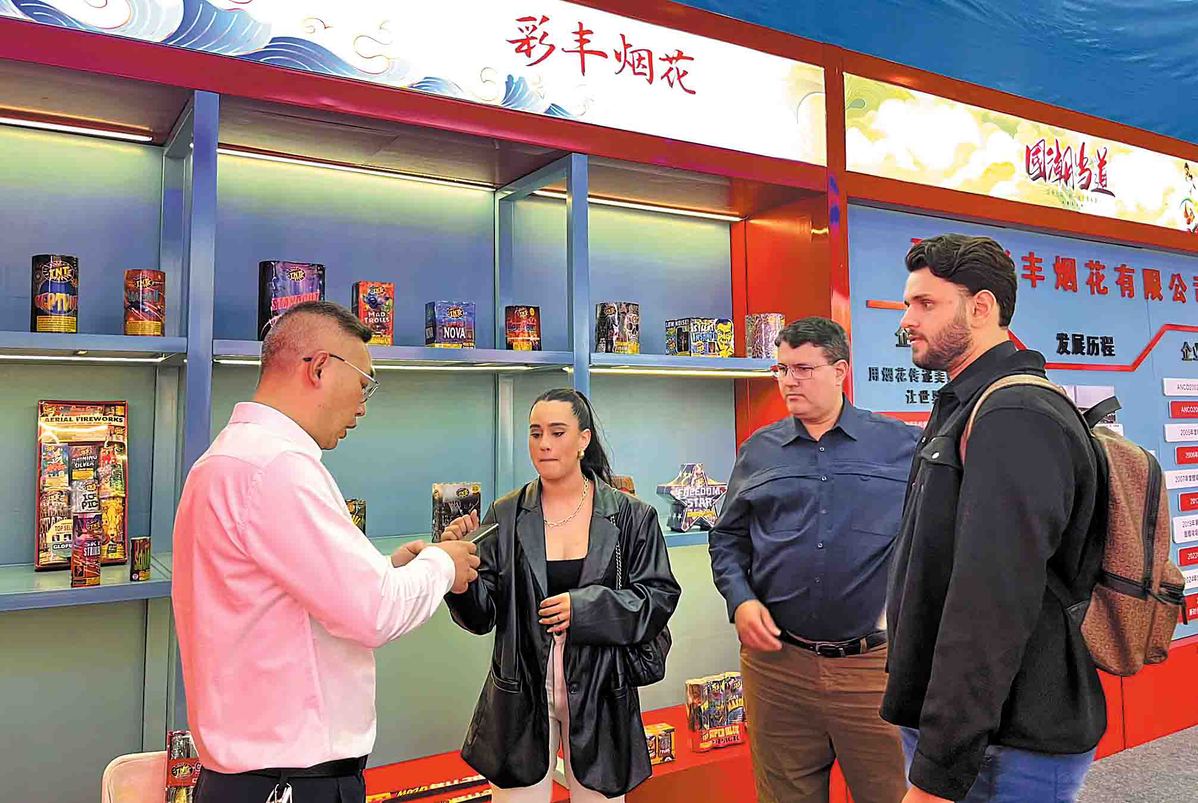New global markets, sales methods emerge from smoke of US tariff war
With duties having varying impacts on products, Chinese exporters look to alternatives






Benefits of diversification
Wuxi Rapid Scaffolding (Engineering) Co is a national high-tech enterprise specializing in the research, development, production, sales, design, and leasing of various scaffolding products.
In 2024, the company, headquartered in Wuxi, Jiangsu province, achieved sales revenue of 380 million yuan.
Sun Ziling, head of its marketing department, said North America accounts for about 15 percent of the company's total business.
"The current impact is relatively minor. Whether there is a need to abandon the North American market and shift our focus to domestic market, we need to wait until the specific tariff collection begins (to see)," she said.
In addition to the domestic market, the company's business extends to over 80 countries and regions, with subsidiaries in Singapore, Malaysia, and Dubai, the United Arab Emirates.
"Since the beginning of this year, our sales in Southeast Asia have increased by approximately 10 percent year-on-year, and sales in Russia have increased by about 35 percent year-on-year," said Sun.
Apart from leveraging mature cross-border e-commerce platforms like Alibaba.com and 1688, the company has started building its presence on overseas social media platforms such as LinkedIn and Facebook. Through content marketing to build brand trust, the company has attracted the attention of many overseas consumers.
"This approach allows us to maintain traditional foreign trade efficiency while also using the flexibility of a direct-to-consumer model," said Sun.
As the tariff hikes start to bite in the US, more customers there are starting to pay attention directly to Chinese suppliers.
Chinese cross-border business-to-business e-commerce app DHgate recently secured second spot in downloads on the Apple App Store in the US, just behind OpenAI's ChatGPT.
Taobao, the online marketplace owned by tech heavyweight Alibaba Group, has surged to the top of the Apple App Store's downloads in 16 countries, and is among the top 10 in 123 countries.
Experts said the increased overseas traction of Chinese e-commerce platforms demonstrates China's strong capabilities in manufacturing. Chinese products have gained an upper hand in terms of cost and price compared with their counterparts around the world, they said.
In the first quarter of this year, the volume of cross-border e-commerce goods exported from the international airport in Dalian, Liaoning province, has seen a significant increase in small items, according to Dalian Customs.
These items include fishing gear, storage boxes, and stationery, along with traditional exports such as clothing and mechanical parts.
Cao Rui, president of Made-in-China.com, noted some Chinese cross-border e-commerce platforms have gained significant popularity in North America, with consumers flocking to these online marketplaces to buy products directly from Chinese suppliers. "It proves that the demand has not decreased, rather, orders have been redirected," she said.




















